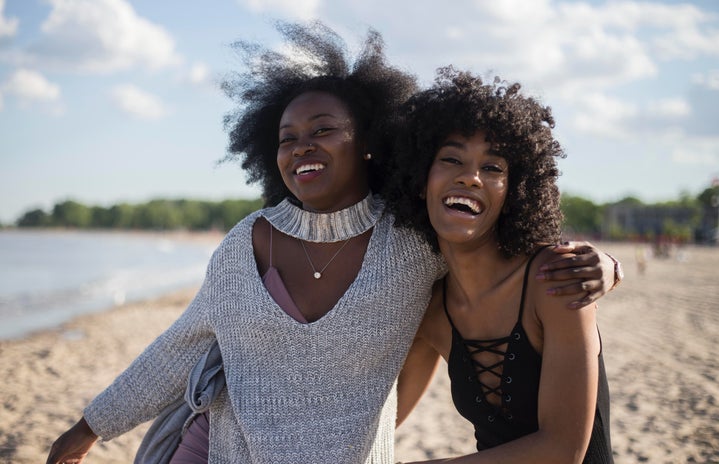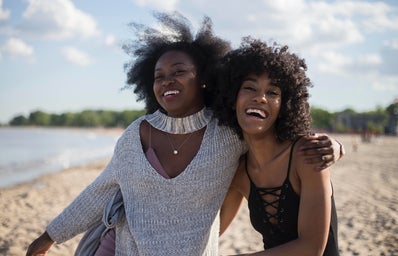Trayvon Martin was killed in 2012 when I was 11 years old. I still remember sitting in my car with my mother listening to the verdict and finding out the man that had killed this boy was not going to jail. I spent the rest of the car ride in absolute shock because a murderer had not gone to jail, while my mom was completely unsurprised. I was 13 when the verdict came out. Trayvon Martin’s death was a very pivotal moment in my life.
Going back to school, I thought the world would agree with what I thought about this case: that Trayvon’s death was unjust, and he needed to be brought to justice. Never was I ever so wrong.
I went to an inner-city high school where the teaching staff was mostly white, one of my teachers said that “Black Lives Matter” activists hate the cops. Some of my teachers attempted to lead the discussion, in which most of it was led by non-black kids, and when the black kids did try to speak, they were quickly silenced. We were left again to talk amongst ourselves.
Trayvon’s death, and all the deaths that followed, put me down a path I never expected to go down. I want to say it made me righteous, that it made me “woke”, and to some degree, it did, but more than anything else, it made me angry, it made me depressed, it made me broken. I know so many names. I know Trayvon, I know Eric, I know Philando, I know Sandra, and now I know Stephen. I don’t ever want to forget their names, but when another one appears, another one goes out the window. Now there are too many names and I mentally kick myself for not knowing all of them.
Being the only black person in many spaces, people always expect me to carry the mic. Why do you think this happens in your community? Why do you think this is a race issue? Don’t you think you’re being a little overdramatic? I am not Martin Luther King Jr., I am not Malcolm X, I am not Rosa Parks. I never asked to be inherently political, it just happened.
Yet people expect me to march in the street when I can’t even get out of bed in the morning. Why do I have to be strong, be bigger, be better, in the face of such hard times? Why can’t I lay in bed and stare at the ceiling? Why can’t I take a day off? I’ve only read about heroes in comic books, but now I’m being forced to become one. Who am I going to carry this burden with, without seeming weak, without seeming paranoid, without seeming like I’m playing some black card? As if my blackness is something that I can pull out at will, whenever I want, and use it like a Draw 4 in Uno. I’ve had tantrums, I’ve left school early, I’ve pushed people away. I am hurt.
I’m always afraid to say is that I’ve been traumatized by violent acts against black people in the news and in media. From Twitter videos to racial slurs being thrown against black athletes, and even to conversations I’ve had with non-black friends, where I’ve left with my hands shaking and my mind whirling of all the world’s injustices.
Another dead black body, another Twitter feud, another cop on paid leave, we take a knee, we’re not American, another mother without her child, another child without a future, another person invalidates my experiences, another day I’m angry, another day I don’t want to be the angry black woman, another day where my words get stuck in my throat, another day in “Amerikkka”.
We never talk about the mental health impact racism has on the black community. 1 in 10 African Americans suffer from PTSD, due in part to the racism they face, from microaggressions to the outright hate crimes. We never talk about how the images and videos they play on the news are potentially triggering to young black children who have to grow up with a distaste for the world. I find myself hiding behind humor, stupid jokes, anything that will numb my pain.
And I know Trayvon died 6 years ago, but this year he would have been 21 years old, and I think about how this year I’m 18, going on 19, and I still don’t know what direction my life is heading in. I think about all the decisions he never got to make, the education he never got to learn, and the family he never got to start. They never tell you about the stress of carrying these thoughts on your back, how our ancestors have carried them for centuries, how they have been forced to move on. Another black body dead, another hashtag on the internet, another memory in my head, another trauma I have to carry.
Frankly, I don’t know how so many black activists deal with the constant onslaught of pain and anger. All I know is Erica Garner had a heart attack at 30, after devoting her life to activism where her father was wrongly murdered. I know 30 is far too young to die.
I still cry for Trayvon, this kid I’ve never met. I am still bitter and hurt and angry at the world that denied him justice. I still cry for this kid who never got to be 21, for the kid that taught me if I’m not outraged, I’m not paying attention. I still get angry at myself, when I can’t raise my voice to defend him. I still scream internally for his justice.


